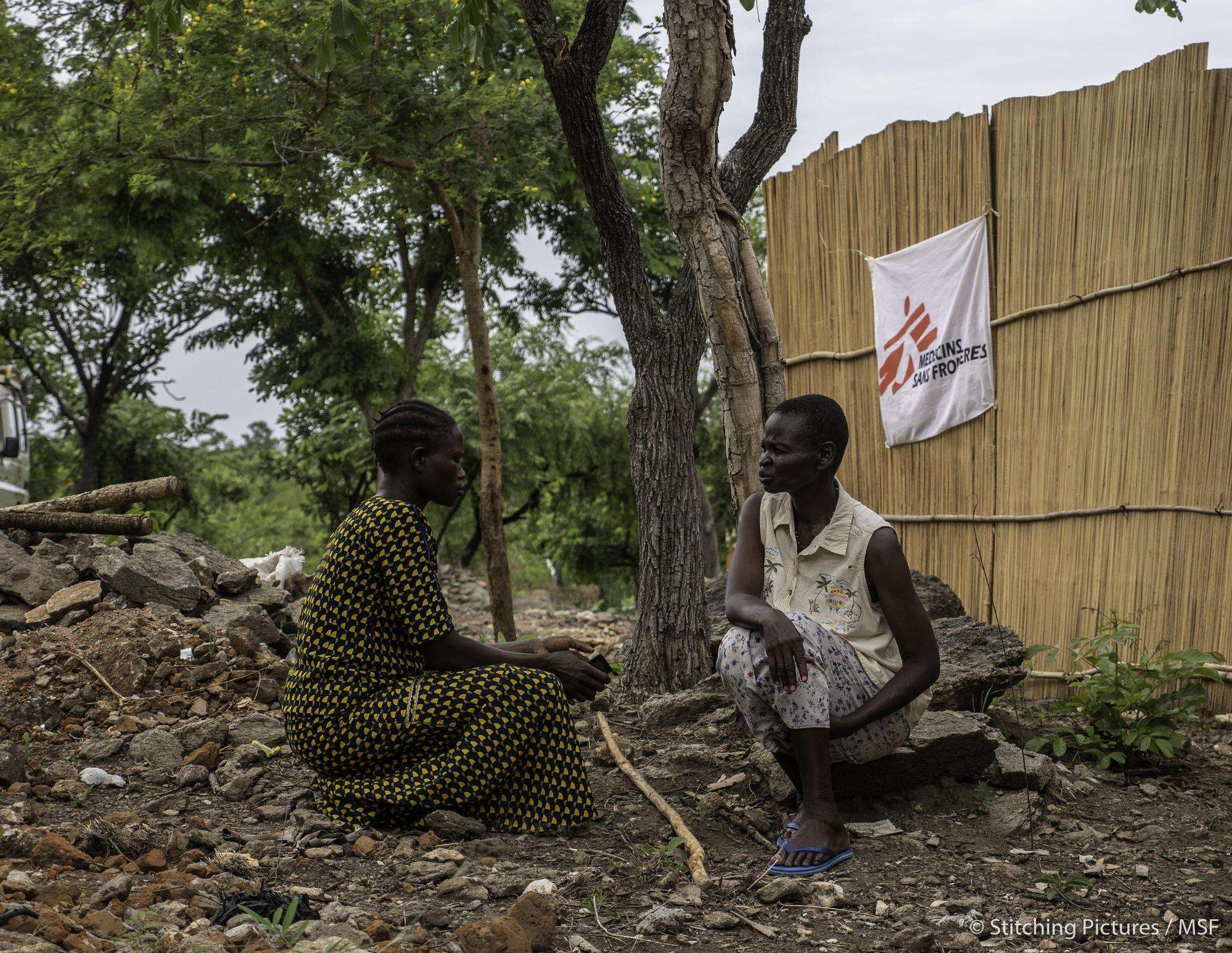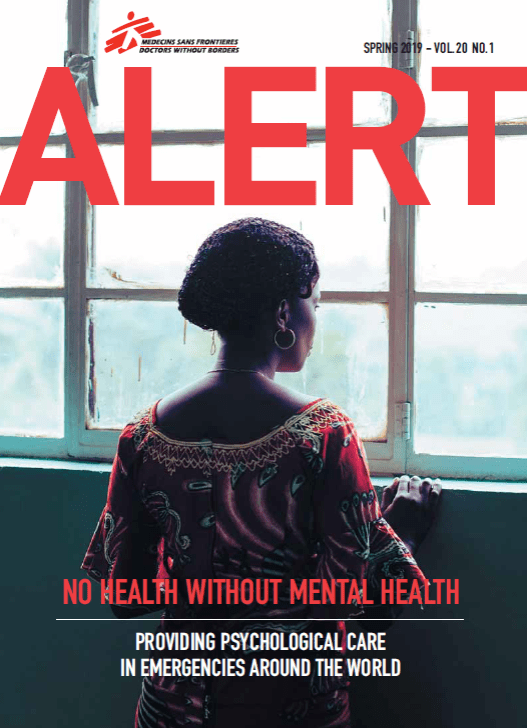In the camp for internally displaced people near the town of Malakal in South Sudan, Dhan Tap gazes sadly at a picture on his mobile phone. The photograph shows a tattered white rope hanging from the grass-thatched roof of a South Sudanese home.
“This rope was used by a 13-year old boy who hung himself,” he says. “Many of our patients—whether adults or teenagers—feel there is no future for them. [This] boy felt his parents could no longer support him while in the displacement camp, and he felt trapped. Helpless.”
Growing mental health needs
Dhan, who himself fled conflict in the area, works with Doctors Without Borders/Médecins Sans Frontières (MSF) as a mental health counselor in Malakal camp. Over the years, he has seen an increasing caseload of patients suffering from mental health conditions, often linked to their experiences of past displacement and future uncertainty. From January to October 2018, MSF’s Malakal mental health team supported roughly 30 new patients per month. Half of these patients struggle with serious mental health conditions, including attempted suicide.
Nearly all of MSF’s mental health programs in the East and Horn of Africa–including projects in Ethiopia, South Sudan, Sudan, Tanzania, and Uganda—have seen a significant increase in numbers of patients in recent years. That’s partly due to conflict and displacement across the region. There are now more than 2.2 million refugees who fled South Sudan, and another 2 million displaced within the country.
To meet the mounting needs, the number of MSF mental health projects in the region has more than doubled in the past four years in Ethiopia, Sudan, and South Sudan. Activities—including individual counseling, treatment with medication, and group activities—increased by 35 percent in 2017 compared to 2016.
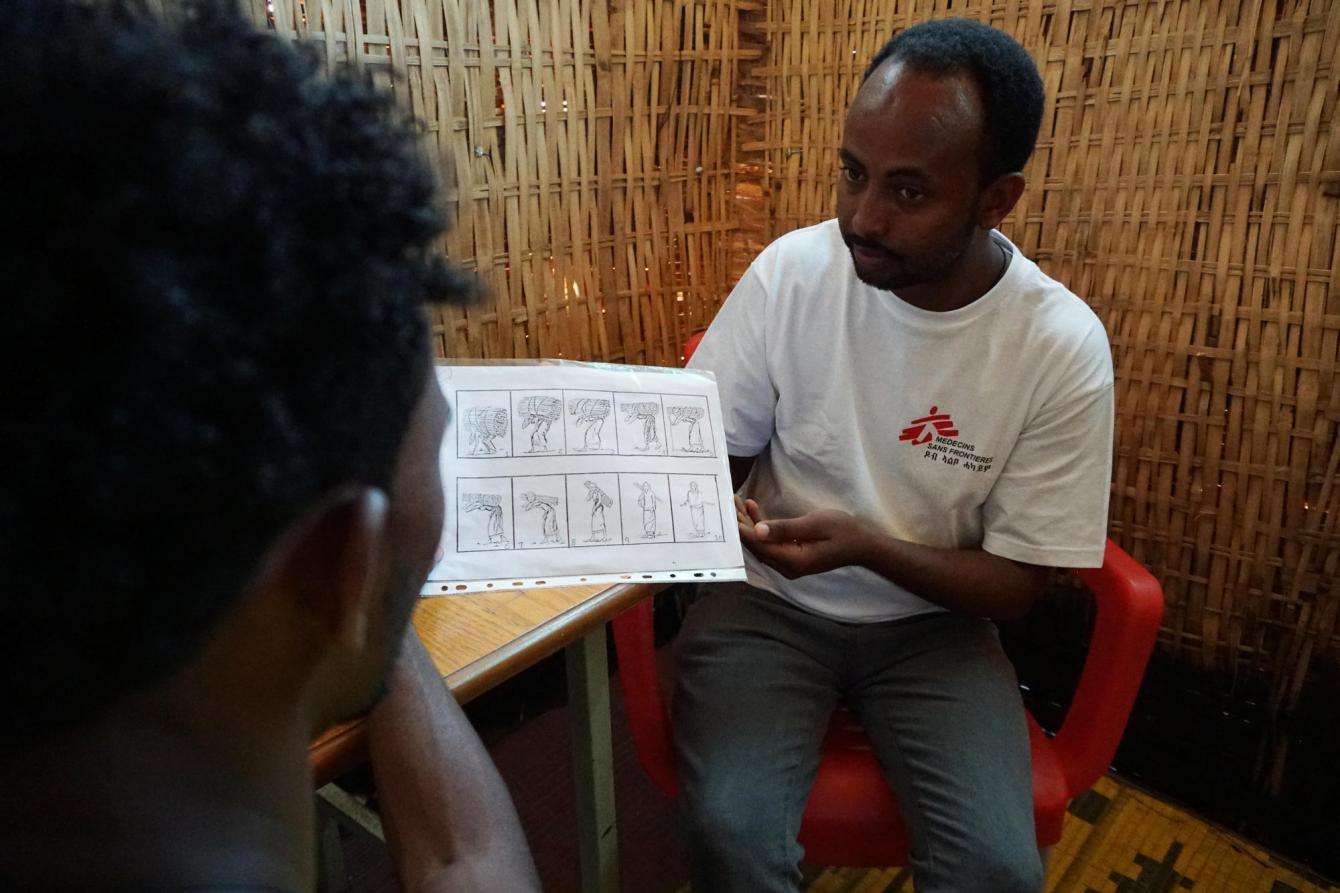
Forced from home
In Yumbe, northern Uganda, a town that hosts the largest refugee settlement in Africa, MSF community health educators like Emmanuel Rambo travel across a massive camp to encourage residents to take advantage of mental health support services. Rambo is South Sudanese, twice displaced from his hometown in Yei by conflict, and he can easily relate with the predominantly South Sudanese refugee population in the camp. “There is a stigma within the community—people do not understand what mental health is. Some associate [mental illness] with witchcraft,” he says. “And yet there is a huge need for mental health [care] among this population.”
MSF teams in Yumbe conduct around 900 consultations per month. “But I suspect we are seeing only a fraction of those who need our support,” Rambo says. He and his colleague Vastine Tayebwa, a clinical psychologist, believe that the high numbers of patients can be attributed to one main factor: displacement.
“It’s the sense of loss, past traumatic experiences, and future uncertainty that these refugees are facing,” Tayebwa says. “So far this morning I have seen six patients and already four more are waiting.” While a September 2018 peace agreement signed by the South Sudanese government and several rebel factions has reduced the level of violence, conditions remain volatile. Many refugees are not able to return home and still struggle with their experiences during the young country’s years of civil war.
MSF’s medical research arm, Epicentre, conducted a survey among nearly 10,000 South Sudanese refugees entering Uganda’s Yumbe camp in 2017 and found that nearly all—99.9 percent—cited attacks on their village of origin or neighboring communities as the reason for leaving their country. Mild or moderate mental health disorders can increase up to 20 percent during emergency situations such as conflict-related displacement, according to a 2012World Health Organization (WHO) report.
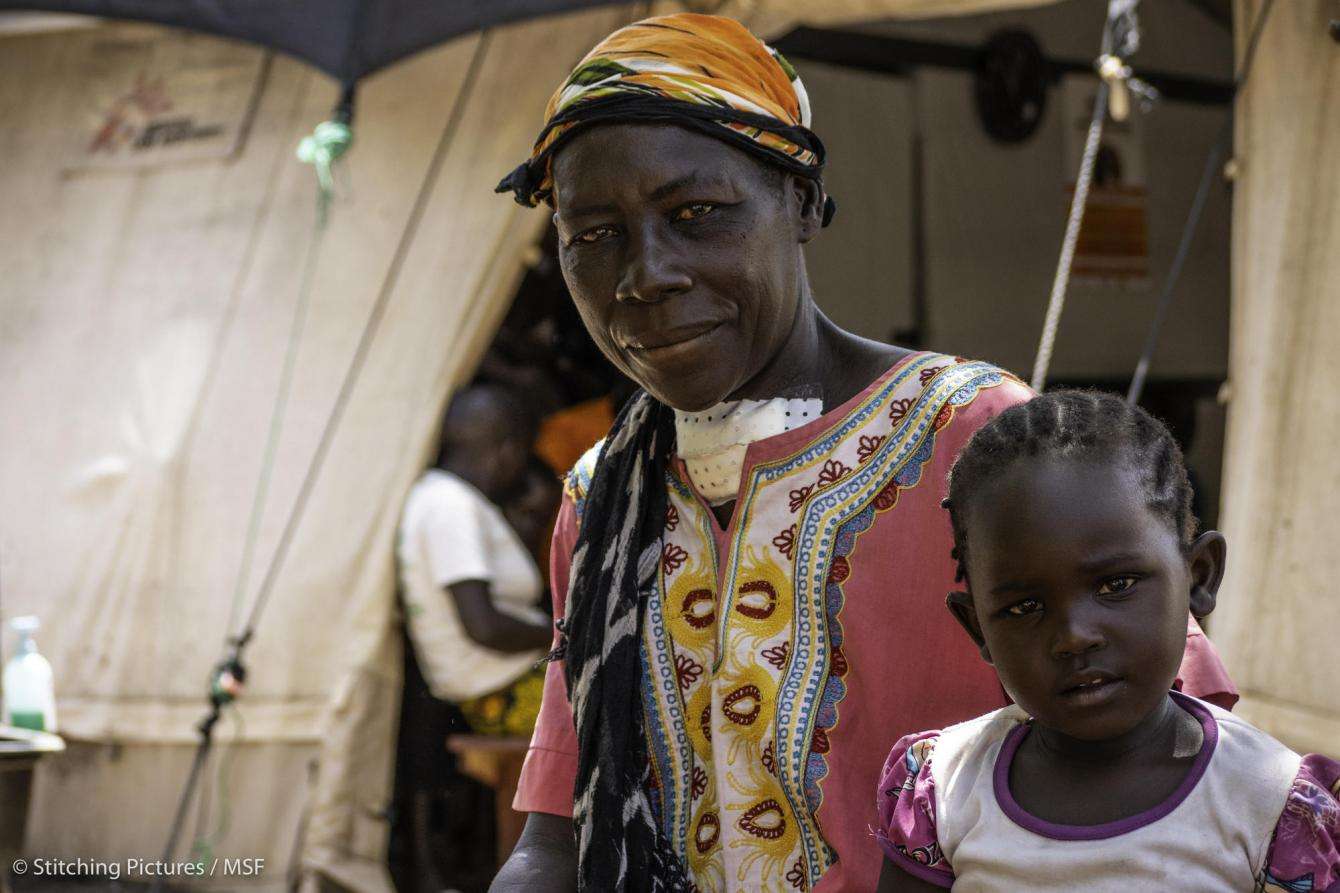
“There is absolutely no doubt in my mind that the chronic conflict, lack of social support, and displacement make a fertile ground for severe mental health patients.”
MSF doctor Jairam Ramakrishnan
A perfect storm
Back in South Sudan, Dhan sees similar trends as he and his team care for internally displaced people from the once-bustling city of Malakal. “Before the latest conflict set off in Malakal in 2013, people considered this town a safe haven,” he says. “But the war destroyed this image along with the sense of security for the people. That sense of loss and being uprooted from your life . . . it definitely takes its toll on you.” Dahn’s colleague, MSF doctor Jairam Ramakrishnan, considers the risk factors associated with people’s experiences in Malakal a “perfect storm” for the development of mental health problems. “There is absolutely no doubt in my mind [that] the chronic conflict, lack of social support, [and] displacement makes a fertile ground for severe mental health patients.”
South Sudanese refugees who fled north into neighboring Sudan bear similar psychological scars. According to MSF mental health supervisor Rania Abdel Kheir, refugees have a host of needs rooted in their exposure to traumatic events, along with subsequent lack of access to coping mechanisms and control over their lives once they become displaced. Kheir is part of the MSF team that works in two refugee camps just across the border in Sudan—Khor Waral and Kashafa. Since work began
in August 2017, MSF has noted increasing numbers of new cases. “The majority of them come from the conflict. Some say they have lost relatives—some have even seen relatives killed in front of them,” says Kheir.
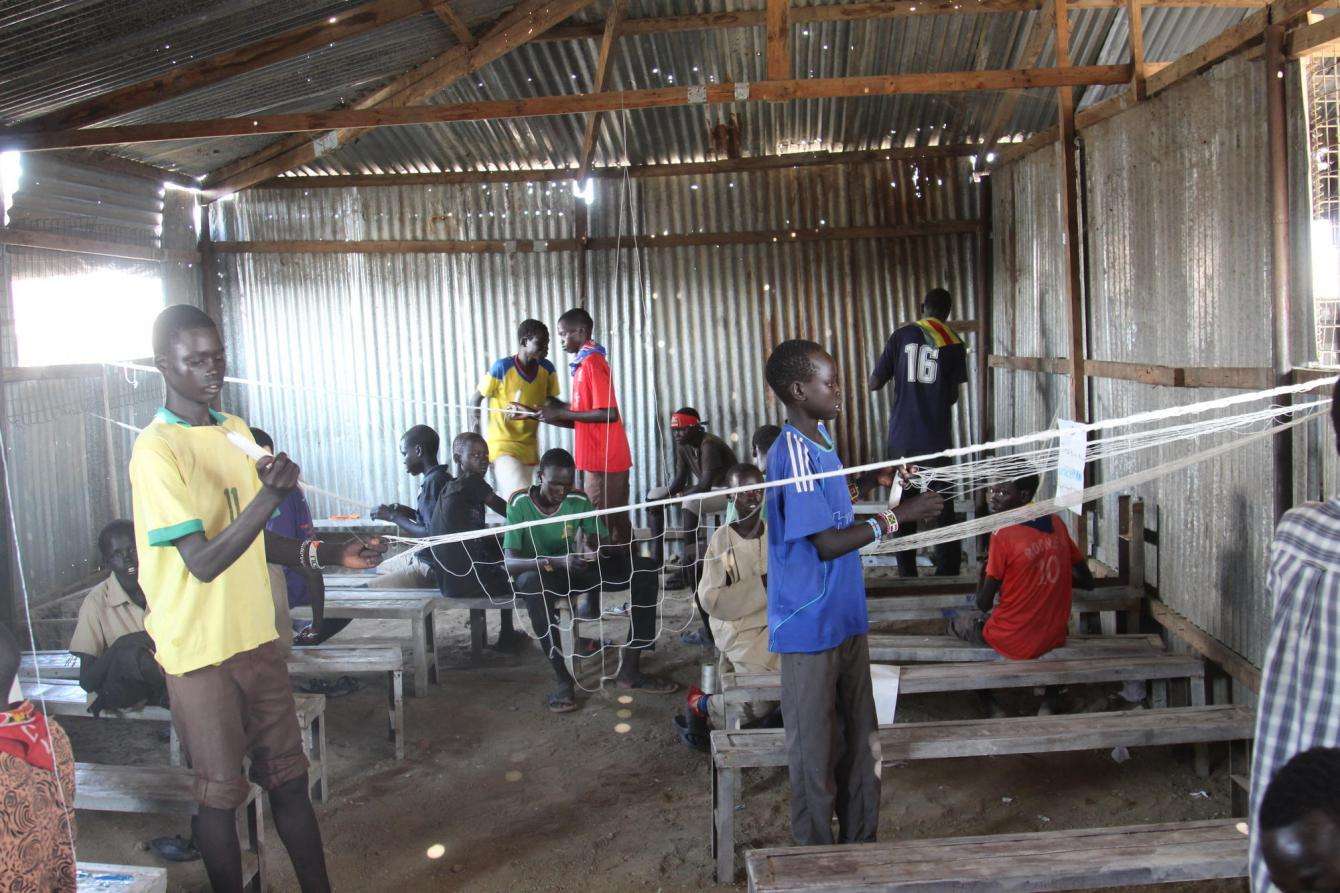
Two sides of a coin
Addressing mental health disorders is an integral part of MSF’s response in eastern Africa and elsewhere. A 2007 report published in the medical journal The Lancet found that mental disorders can increase the risk for both communicable and noncommunicable diseases. “Mental and physical health are like two sides of a coin: when there is disease in your mind, it affects you physically,” says Dhan. Despite the enormous needs, mental health services across eastern Africa are either woefully inadequate or completely non-existent. And even though mental health care is relatively cost-effective when compared with other health services, the lack of qualified personnel remains an issue.
While Dhan understands the challenges, he strives to make the most of the resources available in the Malakal area. He’s found that simple tools such as games, books, and toys can help children struggling with mental health issues in the sprawling camp. “When you see children playing again, you can see that not all is lost.”
*in 2017 compared to 2016
